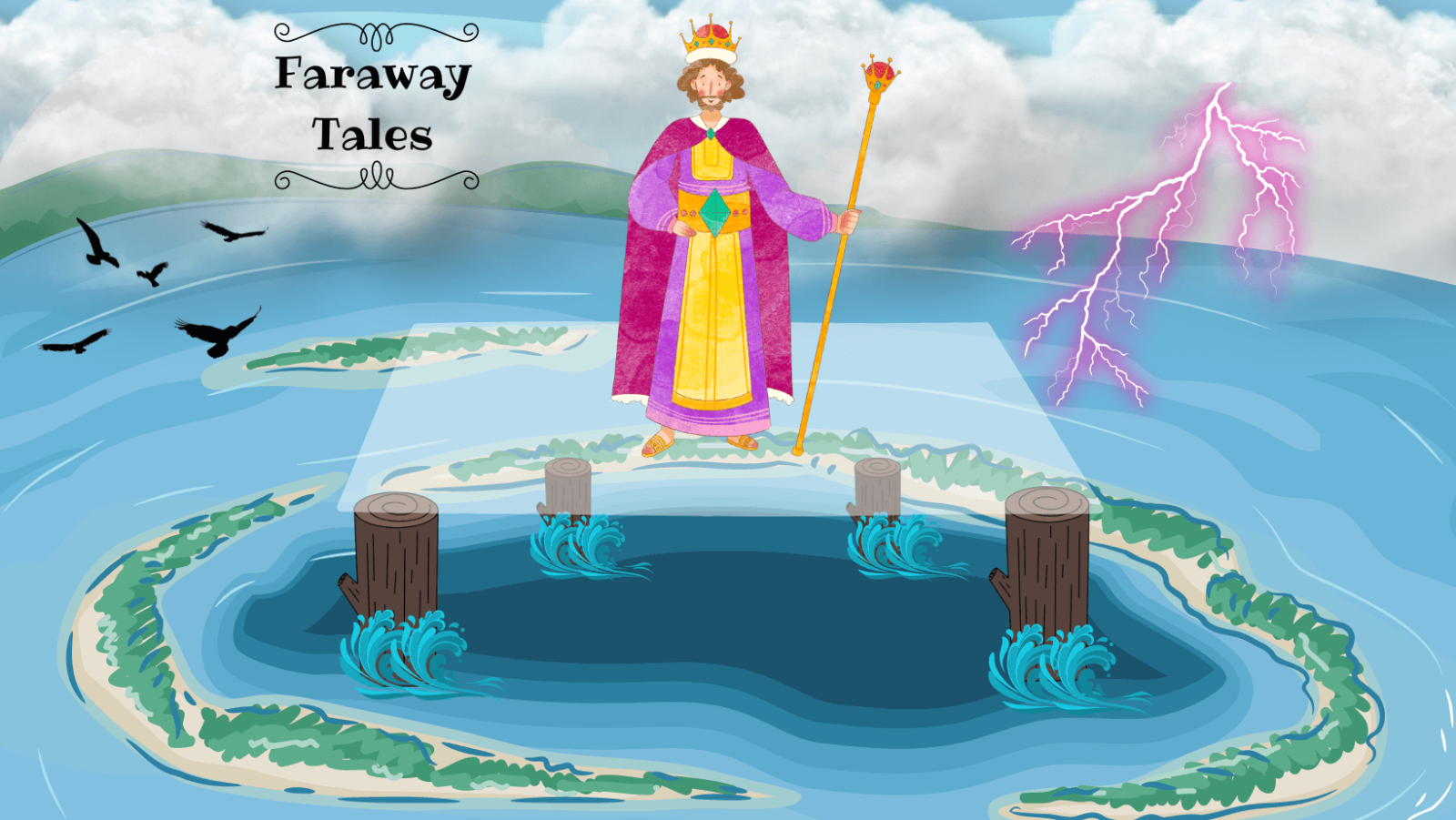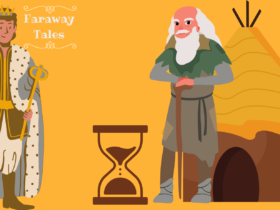|| A Lebanese folktale ||
Hiram, king of Tyre, was a foolish old man. He lived so long that he absurdly imagined he would never die. The idea gained strength daily in his mind and thus he mused “Many pass away each day. I still live. It must be that I shall never die. Men die. Gods live for ever. So I must be a god, and why not?”
He put that question to the chief of his counselors, who, however, were wise enough not to answer it. Hiram felt sure he had at last puzzled them by a question beyond the power of mortal man to answer. That was another proof, he told himself, that he was different from other men and kings—that, in short, he was a god. He repeated this to himself so regularly that he came to the conclusion it was true.
Then he decided to make the great secret known to the people, and the old man thought if he would do this in an unusual way, his subjects would have no doubts.
He did not make a proclamation commanding everybody to believe in him as a god; instead he whispered the secret first to his chief counselor and instructed him to tell it to one person daily and to order all who were informed to do likewise. In this way the news soon spread to the corners of the country.
In spite of this, nothing happened. Hiram, now quite idiotic, commanded the people to worship him. Some obeyed, fearing that if they refused they would be punished, or even put to death. Others declared there was no evidence that the king was a god. This came to the knowledge of Hiram and troubled him sorely.
“What proof do the non-believers require?” he asked of his counselors.
They hesitated to reply, but presently the vizier, a shrewd old man with a long beard, said quietly, “I have heard people say a god must have a heaven from which to hurl lightning and thunderbolts, and a paradise in which to dwell.”
“I shall have a heaven and a paradise,” declared Hiram. He thought for days and exclaimed one day, “I will build a palace which will seem to hang above the sea on nothing!” he said to himself, chuckling. “None but a god could conceive such a brilliant idea.”
Hiram set about his ingenious plan at once. He sent trusted envoys far and wide for skilled divers. Hiram himself gave them their orders and they worked only at night, so that none should see or know of their work.
Their task was to fasten four huge pillars to the bottom of the sea. Their work completed, the divers were well paid and sent away.
Next, a different gang of workmen was brought from a strange land. They constructed a platform on the pillars in the sea.
The first storey was of clearest glass, so clear, indeed, that the people saw through it and thought they saw nothing. On this the other stories were erected, and, of course, they appeared to be suspended in space. The people were amazed!
There were seven stories to represent seven heavens. The second, the one above the glass, was constructed of iron, the third was of lead, the fourth of shining brass, the fifth of burnished copper, the sixth of glistening silver, and the last story of all, of pure gold.
The whole building was lavishly studded with precious stones. By day, when the sun shone, the appearance was dazzling; the people could not help but regard as a heaven that which they could scarcely look upon without being blinded. In the setting sun the uppermost story, with its huge golden dome, glowed like an expanse of fire; and by night, the myriad gems twinkled like additional stars.
Yet some people would not believe this was a paradise, and so Hiram had to set his wits to work again. “Thunder and lightning I must produce,” he said. In the second storey he kept huge boulders and round heavy stones. When these were rolled about the people thought the noise was thunder. By means of many revolving windows and reflectors, Hiram could flash a light on the town and delude simple people, who were easily impressed and frightened, into the belief that they saw lightning.
One day there was a storm approaching. Hiram thought that he must sit in his Paradise while a real storm was raging outside. “Then people would surely believe”, he thought.
His counsellors advised him against the idea but he had stopped listening to them long ago. “I, Hiram, God of Storm, am not afraid”, he countered.
But when the real thunder rolled and the lightning flashed all around his paradise, Hiram lost his boastful courage. The building shook against the wind and the strong ocean waves. He saw visions. The storm grew fiercer, the lightning more vivid, the thunder-crashes louder, and Hiram screamed when there was a tremendous noise of crashing glass. The first storey could not withstand the terrible crashing of the waves. It cracked and crumbled. There was no support left for the six metal heavens above. They could no longer hang in space.
With a mighty crash, that struck terror into the hearts of the everyone, the whole structure collapsed in a thousand pieces in the sea.
Marvelous to relate, Hiram was not killed or drowned.
It seemed a miracle that he survived such a fierce storm in the strong ocean currents. Some people thought that this survival proved him to be a God more than the paradise that he built.
Unfortunately, his life was only spared to end in greater misery and sorrow. He had spent a lot of effort and time into convincing others that he was God that he failed to notice the restlessness of his people and the dangers beyond the boundaries. He was dethroned by Nebuchadnezzar, of the Chaldean dynasty from Babylon (now Iraq) and ended his days imprisoned a wretched captive.
And all the people knew that Hiram, once the great king of Tyre, the friend of King David and King Solomon, was nothing but a mortal and a foolish one.
Like (0)







Leave a Reply